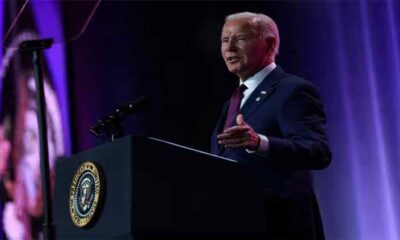The Punjab government on Friday submitted an incomplete report before the Supreme Court regarding cases registered and suspects arrested for their involvement in violent protests on May 9 after the arrest of PTI chairman.
The apex court had ordered the authorities to provide details of the cases registered during the hearing of pleas challenging the trials of civilians in military court.
The report, however, does not include the data of minors, journalists, lawyers or those in custody, but provided data of the detained women.
According to the report, 81 women were arrested, of whom 42 have been released on bail, while 39 are in jail on judicial remand.
The report said that arrest orders were issued for 2,258 people under the MPO, 3,050 people were found involved in the incidents of vandalism on May 9, while 21 are currently in jail. Under the law, 51 cases were registered against the accused involved in the May 9 incidents.
The report mentions that 1,888 people were arrested under the anti-terrorism law. Of them 108 accused are on physical remand and 1,247 are on judicial remand. Identification parade was held of 33 people under the anti-terrorism law, and 500 people were released as innocent, while 232 people were released on bail.
The report said that 247 cases were registered under other laws and 4,119 people were arrested; 86 accused were sent to physical remand, 2,464 were sent to jail on judicial remand. A total 1,201 people have been acquitted so far, while 3,012 have been released on bail.
Earlier, the Supreme Court resumed the hearing on the constitutional pleas filed by the PTI chairman, former chief justice Jawwad S Khawaja, senior lawyer Aitzaz Ahsan, and Pakistan Institute of Labour Education and Research (Piler) Executive Director Karamat Ali, have requested the apex court to declare the trial of civilians in military courts unconstitutional.
A seven-member larger bench headed by Chief Justice of Pakistan Umar Atta Bandial is hearing the case. Justice Ejazul Ahsan, Justice Mansoor Ali Shah, Justice Muneeb Akhtar, Justice Yahya Afridi, Justice Mazahir Ali Naqvi and Justice Ayesha Malik are the members of the bench.
The PDM government had decided to try civilians in military courts after the Pakistan Tehreek-e-Insaf (PTI) workers vandalised army installations following the arrest of their party chief.
At the outset of the hearing, Advocate Faisal Siddiqui submitted that he had filed a written statement.
Siddiqui, who is representing Piler Executive Director Karamat Ali, said his petition was different from others. “I have not challenged the Army Act and I do not contend that the civilians cannot be tried in military courts.”
He said that the trial of civilians in military courts had taken place earlier as well.
Justice Shah inquired why he did not challenge the Army Act.
Advocate Siddiqui said that the trial of “favourite persons” or specific civilians under military laws was wrong and unconstitutional.
He stated that he did not say that any clause of the Army Act was illegal, adding that a verdict against military courts in 1998 did not bring the Army Act under question.
Justice Ayesha asked what principles had been set regarding the Army Act in other cases and what was the basis on which the civilians were being tried under the Army Act.
Justice Shah observed that a trial is conducted under the Army Act and Official Secrets Act when it comes to national security.
He asked Advocate Siddiqui to argue on the law if he hadn’t challenged the Army Act.
Advocate Siddiqui submitted that the Army Act is used with malice as the Anti-Terrorism Court was asked to hand over 15 people. Those who will be tried in the Anti-Terrorism Court will have the right to appeal, while those who will be tried in military courts do not have the right to appeal.
He argued that why some people are being treated under prejudice. If there are 60 accused named in an FIR, why 15 are given to military courts, he added.
He said that there are five judgments of the Supreme Court which are related to the trial in military courts. In 1998 a judgment was announced against the military courts, but the Army Act was not challenged.
Justice Ayesha questioned that on what grounds have civilians been tried under the Army Act?
She inquired that what principle has been set regarding the Army Act. Advocate Siddiqui replied that civil courts were rarely bypassed.
She asked under what circumstances the trial of a civilian can be done under the Army Act? What are the specific circumstances under which a trial in military courts may take place?
Advocate Siddiqui referred to the cases of Liaquat Hussain, Saeed Zaman and the District Bar Association.
Justice Naqvi remarked that the crime report submitted before the court does not contain the provisions of the Official Secrets Act. When the provisions related to the Official Secrets Act and the Army Act added to the cases of May 9 incidents?
Justice Ahsan remarked that the basis of your argument is who has the authority to try a civilian in a military court.
Justice Shah remarked that due to national security, it was said that the trial should be held in military courts.
Justice Naqvi inquired when the Official Secrets Act was added to the FIR.
Justice Afridi inquired that don’t you think that the Attorney General should be asked first how the cases were instituted.
The Chief Justice asked Advocate Siddiqui to continue his arguments and will listen to the attorney general later. Maybe the attorney general will give a statement today on the details asked for yesterday.
Advocate Siddiqui said that yesterday the court had asked that these petitions should not have gone to the high court first. As it is a matter of more than one province, one high court cannot have jurisdiction; these petitions can only be heard in the Supreme Court.
Justice Ayesha Malik remarked that the nature of charges against those who were handed over to military courts may be different. It may be your assumption that there is no evidence against these people.
Justice Afridi remarked that your arguments are not related to the case. It is not even known under which clause these people were sent to military courts.
Advocate Siddiqui replied that if there are evidences against him, he would argue why the cases cannot be sent to military courts.
Chief Justice Bandial remarked asked Advocate Siddiqui to argue on relevant points. The day is reserved for the petitioners; they can argue till 3 o’clock.
Justice Shah said that the law does not say that the Official Secrets Act will apply only to those working in the military. The Act is applicable to the crime committed within the limits of military areas.
What is the procedure for indicting someone in military courts, he questioned.
The Official Secrets Act also applies to restricted areas, buildings and some civil buildings.
Justice Naqvi remarked that you haven’t yet come to the basic point; when were the provisions of the Official Secrets Act added to the FIRs? If the FIR does not include the provisions of the Official Secrets Act, can a commanding officer seek the custody of the accused?
Justice Shah said that they are asking two questions. First, explain how the Army Act can be invoked? And second how is a decision reached within the Army that such and such person is accused under the Army Act?
Advocate Siddiqui replied that this is my argument that the army cannot demand the custody of civilians.
A nine-member larger bench had taken up the pleas on Thursday. However, the bench was dissolved after Justice Qazi Faez Isa and Justice Tariq Masood object to it.
Justice Isa objected that he “did not consider the bench a bench until the Supreme Court first issue a verdict on the Supreme Court Practice and Procedure Act, 2023.” And Justice Masood backed him.
CJP Bandial had said as the two senior judges had raised questions over the bench, the stay order on the law might be lifted.
The CJP then constituted a seven-member bench which started hearing the pleas.
CJP Bandial observed that the court would “quickly” wrap up the case and asked the government to provide complete details of the arrests made after the May 9 incidents.
“It is not right to issue stay orders on everything,” the CJP said when Latif Khosa pleaded for it.
Earlier, Khosa was asked to inform the court about the law on the basis of which punishments were being awarded, and the basis on which civilian cases in the anti-terrorism courts were being transferred to military courts.
Khosa submitted that the Pakistan Army Act does not mention civilians. On it, Justice Shah said he believed that civil laws have stricter punishments than military ones.
The CJP also said that private conversations were recorded and privacy was breached.
The court was also informed that the “military trials of the civilians are underway”.
Post Views: 70


 Fashion3 months ago
Fashion3 months ago
 World3 months ago
World3 months ago
 World3 months ago
World3 months ago
 Sports2 months ago
Sports2 months ago
 Sports2 months ago
Sports2 months ago
 World3 months ago
World3 months ago
 Business2 months ago
Business2 months ago
 Tech3 months ago
Tech3 months ago






















